he mask is arguably the single most sought after commodity during the current Coronavirus pandemic. The dramatic increase in demand for face masks has seen its price skyrocketed to unbelievable levels. On Amazon, a package of 20 N95 particulate respirators made by Honeywell has quintupled from US$12.40 to US$64. It is currently out of stock.
China, the country that has won its war against Covid-19, is seeing a booming business for its face masks. Even when the world’s second biggest economy was still struggling with the outbreak, thousands of factories had begun the profitable business of producing masks. In January and February alone, a whopping 8,950 new manufacturers ventured into the lucrative business.
Shi Xinghui, sales manager of N95 mask machine company in Dongguan city, said – “A mask machine is a real cash printer. Printing 60,000 or 70,000 masks a day is equivalent to printing money.” Qi Guangtu, a factory owner who invested US$7 million and has seen the mask-making machines running 24-hour since Jan 25, said – “The machines pay for themselves in 15 days.”
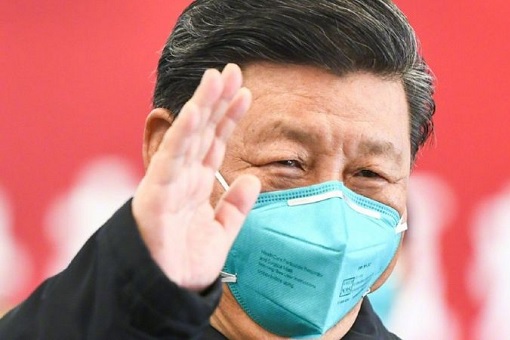
Back in January, China was so short of face masks that it had to appeal to other countries for supplies. The country bought 220 million face masks between 24 January and 2 February alone from countries like South Korea. After placing an order of 200 million masks from Turkey in the end of January, China bought another 200 million face masks in the middle of February from Egyptian factories.
By the middle of March, the Chinese produce 200 million face masks a day – more than 20 times the amount it did at the start of February. Still, out of those numbers, only 600,000 are N95 standard masks, used by medical personnel. That’s because the production of N95 respirator masks requires a special fabric that is in short supply.
Amazingly, while almost every country in the world was struggling to get face masks, some companies came forward to donate their stockpiles of face masks, including the much sought after N95 particulate respirators to healthcare workers. Companies like Facebook, Apple, Goldman Sachs and other companies have raised eyebrows over donations of protective masks.
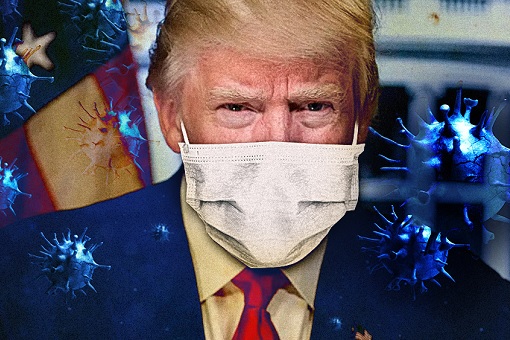
Facebook CEO Mark Zuckerberg announced that the social media company had donated its “emergency reserve” of 720,000 masks to health workers. Investment bank Goldman Sachs, on the other hand, donated 100,000 masks to the state of New York and New Jersey. Apple, the iPhone maker, donated a staggering 9-million N95 face masks to the U.S. relief efforts.
So where did those organizations get their stocks of the precious N95 face masks at a time when even the U.S. government was hunting for it? Apparently, Facebook had purchased its massive stockpile of masks as a protective measure in case the California wildfires continued. In his post, Zuckerberg said the company was working to source millions more to donate.
Goldman Sachs revealed that the company’s mask supply were procured in the wake of previous epidemics. However, the company declined to say where the masks were stored and how many masks in total the company had in its stockpile. Apple, meanwhile, was secretive about its “emergency reserve of protective masks” programme.
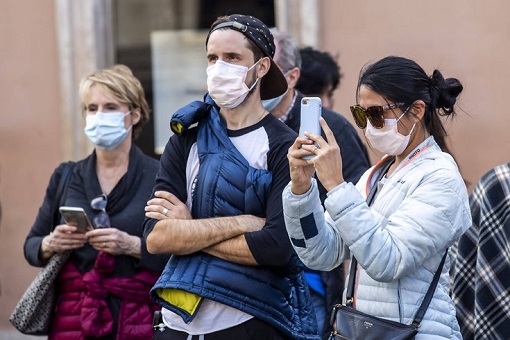
Similarly, NASDAQ had donated 12,000 face masks, kept as part of its “business continuity plans” in case of earthquakes, fires or a pandemic. According to Regina Phelps, president of Emergency Management and Safety Solutions, many financial institutions started building up supplies of face masks and sanitizers 15 years ago, when China was hit with avian influenza outbreak in 2004.
Stockpiling continued in 2009 when the H1N1 virus (swine flu) became a pandemic. At least 394,133 people in Asia were infected with the death toll reaching 2,137. But the primary reason why major U.S. corporations had increased their stockpile to an insane level was due to the 2018’s devastating California wildfires, where a regulation says employers must provide masks to employees who could be exposed to wildfire smoke.
Like Facebook and Apple, as part of the national emergency reserve, New Zealand has 18 million masks in reserve with 80,000 more being made a day to cater for its 5-million populations. In a strategic move, Prime Minister Jacinda Ardern posted a video on Instagram showing masks being made in a factory in Whanganui, a city on the North Island of New Zealand’.
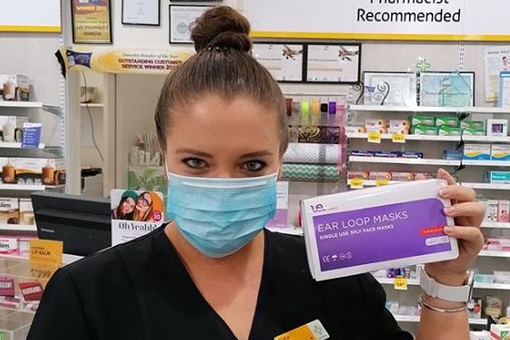
Jacinda, New Zealand’s youngest prime minister said – “This is a factory in Whanganui churning out face masks to help keep our essential service workers safe. They can produce at least 80,000 masks a day and with new machinery due in the coming weeks and months they will be able to double production. Add to that the 18 million masks we already have in our national reserves and we’re well stocked.”
In comparison, the United States, with its 330 million people, has a national stockpile of only 12 million N95 masks and 30 million surgical masks. Now that the country has more than 100,000 confirmed Coronavirus cases, the U.S. Department of Health and Human Services said that over the next 18 months it aims to buy 500 million masks for the Strategic National Stockpile.
While WHO (World Health Organization) still recommends people not wear face masks unless they are sick with Covid-19 or caring for someone who is sick, not many were convinced with such suggestion. It was because of a massive global shortage that WHO, and other so-called specialists, suggested not to wear masks so that it can be saved for the frontline health workers.
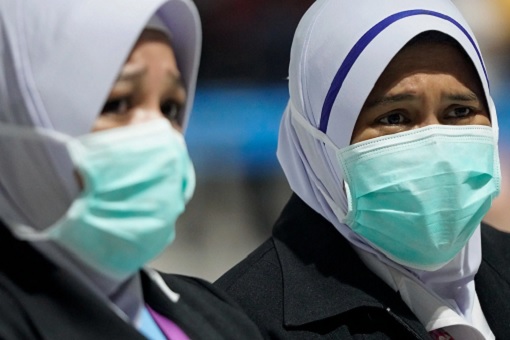
But even if a country does not have enough stocks for every citizen, it should at least proactively start stockpiling when an outbreak happens. Taiwan is one of a few countries that have pressed all the right buttons. When the first news about a mysterious illness in Wuhan started emerging in Dec 2019, the country, which had learned its lesson from the SARS outbreak, treated the news with utmost urgency.
Besides inspecting plane passengers coming from Wuhan, banning Wuhan residents, suspending tours to China, and eventually banning all Chinese visitors, Taiwan’s government stopped exports of surgical face masks as early as January 24. At the same time it requested local manufacturers to boost production – reaching 10 million masks daily to cater for its 24 million populations.
To ensure zero hoarding of supplies or exploitative pricing, as seen in Hong Kong, Taiwan government quickly took control of face mask distribution from the private sector on January 31. By February 6, a purchasing policy was implemented where every Taiwanese can buy a certain amount of masks per week from pharmacies and clinics for NT$5 (US$0.17; £0.13; RM0.70) each.
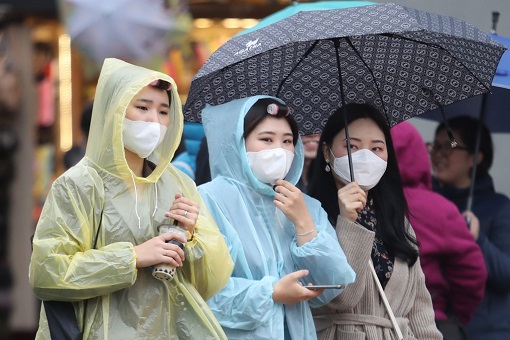
As Taiwan banned the exports of masks, Singapore said it was looking to develop its local manufacturing of masks. But Singapore was prepared in its psychological warfare against panic masks buying. The government launched an exercise to distribute four masks to each of its 1.37-million local households, thanks to its national stockpile of 16-million masks.
South Korea, Germany, Russia, India, Thailand and Kazakhstan have all joined Taiwan in announcing export bans of masks. After decades of outsourcing, Honeywell and 3M had just started ramping up N95 face masks. But for the time being, the U.S. will still depend on China to meet its demand. However, the U.S. is worrying that China is using “mask diplomacy” to seize global leadership.
Like it or not, every country should make sure that after the Coronavirus pandemic is over, they have sufficient stock of face masks as part of emergency reserve. Medical staff in the Netherlands has blamed the lack of masks for the high rates of Covid-19 infection among them, where severe shortages have forced them to use one mask with multiple patients or to use masks usually used for construction work.
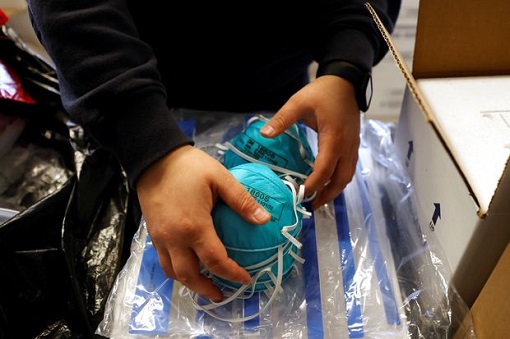
-financetwitter



Amazing post.
ReplyDeletekn95 mask
n95 face mask
surgical mask
surgical face mask
surgical disposable face mask
Face Mask